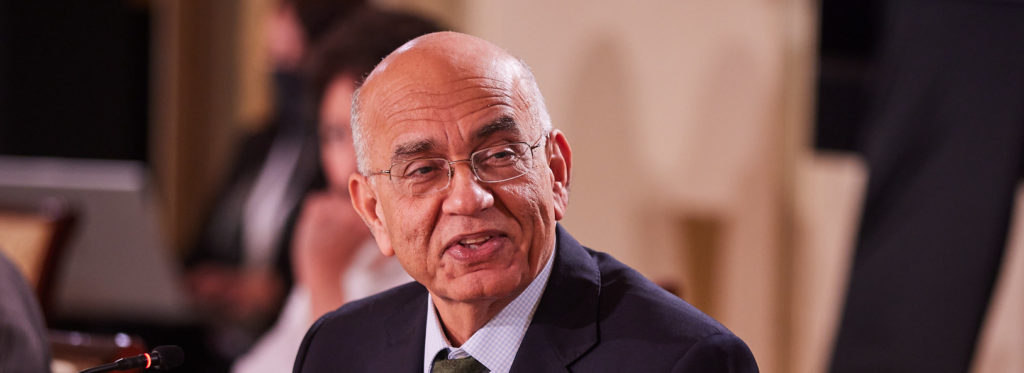
The International Monetary Fund headquarters in Washington, D.C., on April 3, 2021. (Samuel Corum/Bloomberg)
When they gather in Washington next week for the International Monetary Fund and World Bank Group annual meetings, the world’s finance ministers face what has been labeled a polycrisis: Challenges ranging from increased interest rates, climate change and an epically strong dollar, to food-supply shortages, high inflation and a still-prevalent pandemic all combine to threaten not just the global economy but also the livelihoods of hundreds of millions.
It is likely that in the next year the United States will go into recession, Europe will be battered by high energy costs and China will suffer its lowest growth in decades. A major slowdown in the global economy is almost inevitable.
What is at stake — what will greatly depend on decisions that finance ministers make next week — is whether developing countries suffer a lost decade of economic opportunity, as happened to many countries in the 1980s, or whether they are enabled to maintain momentum, as occurred after the 2009 financial crisis.
While much will depend on national policy choices, the external environment will be enormously important for most countries. Global cooperation through the IMF and the World Bank matters a great deal. The challenge for these institutions will be not to just discuss new funds and funding mechanisms but to actually deliver the greatly increased support the moment demands.
Read the entire article in the Washington Post.

